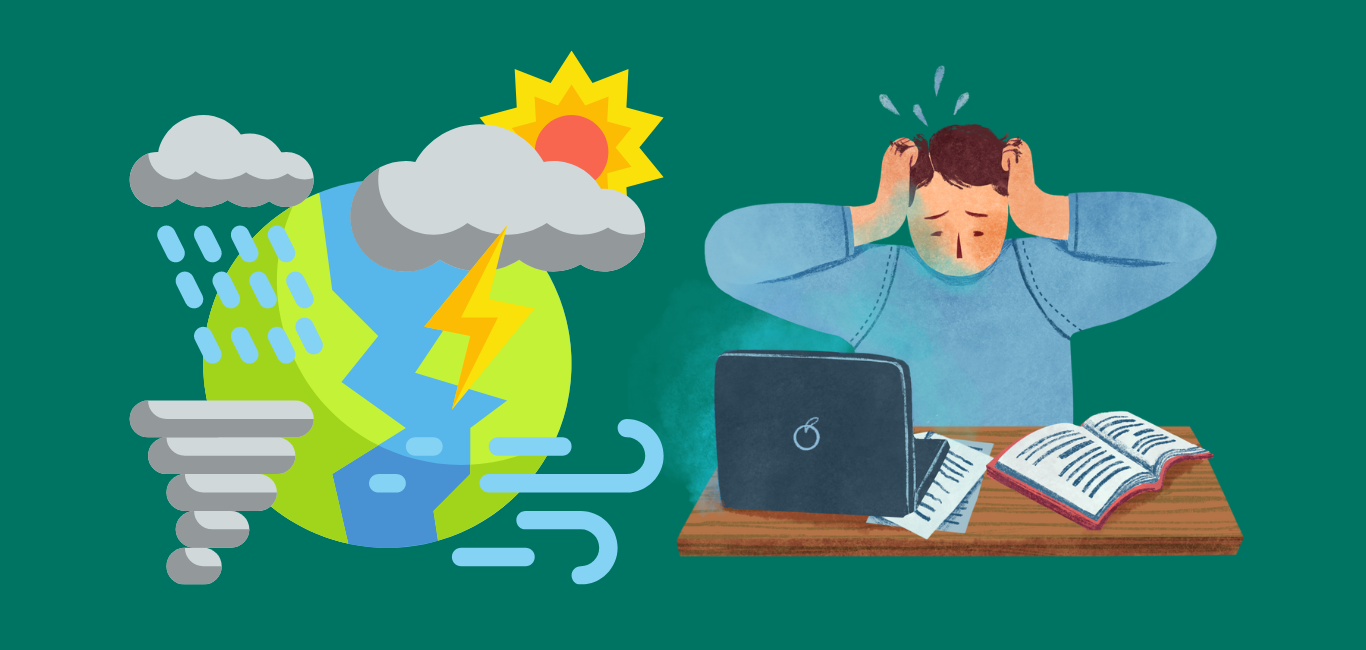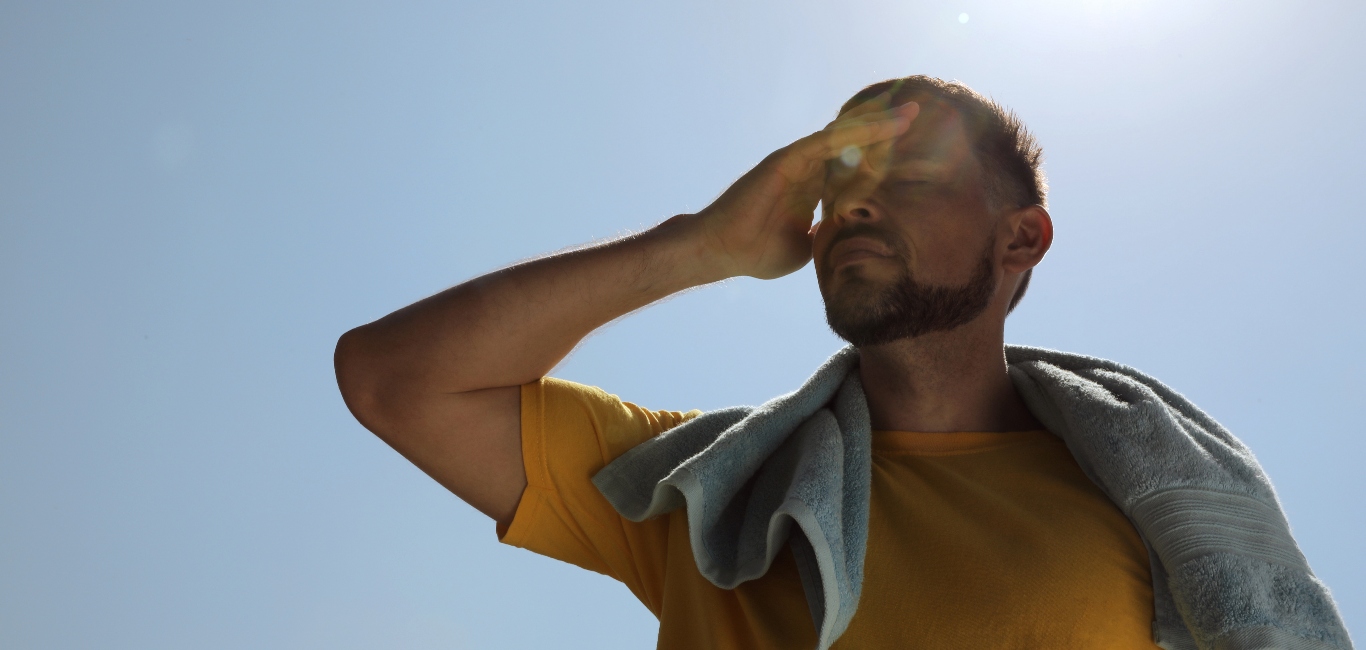
“How do I visualize a bright future for myself when I see the world as we know it is changing? We don’t know for how long things are going to be okay, and we are living with that reality every single day.”
Medha Saharya, a counselling psychologist, says she faces this line of questions all too often.
Saharya runs a support group called “Work in Progress” in Bengaluru, Mumbai and Delhi, for people suffering from common mental disorders (during the pandemic the group moved online). She says the group is increasingly seeing more youngsters turn to it for help after developing anxiety-like symptoms due to their worry over climate change.
Worldwide, youngsters are increasingly reporting what has come to be known as ‘eco-anxiety’.
A 2021 survey of 10,000 children and young adults from ten countries found that nearly half the respondents felt their feelings about climate change negatively affected their daily life and functioning. An overwhelming number felt either moderately worried (84 percent) or extremely worried (59 per cent) about climate change.
“Climate anxiety and distress were correlated with perceived inadequate government response and associated feelings of betrayal,” the authors note.
Climate anxiety can be connected to many emotions, including worry, fear, anger, grief, despair, guilt, shame and even hope, the paper notes. Individuals who have experienced drought, famine, floods, rising sea levels and increasing global temperatures are also facing increased levels of anxiety, post traumatic stress disorder and other forms of mental distress, according to one research review of related literature.
While this might seem odd, considering that environmental destruction has been a longstanding issue, it is a very real problem. The American Psychological Association (APA) describes eco-anxiety as a chronic fear of environmental cataclysm that individuals develop from observing the impact of climate change.
“There are increases in concern about climate change, and some therapists report increases in the number of young people reporting climate anxiety,” says Dr Susan Clayton, a professor of psychology and environmental studies at the College of Wooster, Ohio, in the US.
It is a problem, she says, adding that it is hard to tell whether it is climate change that is causing youngsters to experience – as this has not been measured in a consistent way.
Awareness of climate change is increasing, spurred by social media and the internet. Many youngsters across the world know that global temperatures have risen by a whole degree since the start of the Industrial Revolution in the second half of the 18th century.
Another degree of increase in temperatures can well spell climate doom, according to the Intergovernmental Panel on Climate Change, which has set 2 degrees of warming as the upper threshold – past which heat extremes would have severe consequences for health and agriculture. Limiting warming to below 1.5 degrees Celsius would reduce the number of people frequently exposed to extreme heatwaves by about 420 million, with about 65 million fewer people exposed to exceptional heatwaves. At 2 degrees Celsius of warming, the deadly heatwaves India and Pakistan saw in 2015 may occur annually.
People who have lived through and survived climate calamities tend to carry this fear especially in the form of post-traumatic stress disorder (PTSD), researchers studying the topic say. There is also evidence to suggest that individuals become increasingly anxious when they feel that the people in charge are ignoring the issue.
It is important to understand that anxiety is a well-orchestrated physiological response to stress that mammals evolved as a survival mechanism. This reaction, colloquially referred to as the ‘fight or flight’ response, equips mammals and people to react to life-threatening situations with instantaneous hormonal changes to survive.
But this response, as with all other types of anxieties, can be controlled, and this holds the key to how individuals should deal with eco-anxiety as well.
Mind control
According to Dr Clayton, those suffering from extreme climate change anxiety could get a grip on their emotions by practising techniques such as mindfulness, relaxation, controlled breathing, and taking breaks from news.
“People can increase opportunities to feel positive and in control by joining groups to talk about the issues and try to do something about it. This changes a person from being a passive victim of climate change to someone who is actively trying to help, and the group interactions are often supportive and positive,” she adds.
As no single individual is responsible for climate change, the worriers should not believe that they are responsible for fixing the problem.
Therefore, worriers should try to work in like-minded groups which understand problems such as climate change or ecological crisis, so that they can make at least a small difference to macro issues.
But increased levels of stress among youngsters can have longer term consequences as well, according to Dr Jennifer Atkinson, Professor of Environmental Humanities at the University of Washington.
She wrote in a mid-2021 blog post that her students at the University of Washington tell her they have nightmares about the future; and that many of them do not want to have children because of their worldview that the Earth is heading towards apocalypse.
But Dr Atkinson believes there is a downside to classifying eco-anxiety as a mental health disorder.
“It de-politicises our environmental crisis,” she writes. “By pathologizing eco-anxiety as a mental health disorder, we locate the problem with the individual [rather] than the larger political structure. This directs focus to soothing the feeling of the ones afflicted, instead of taking action to overhaul the systems [that are] turning Earth into an ashtray.”

















